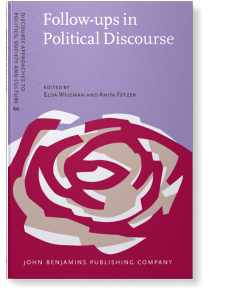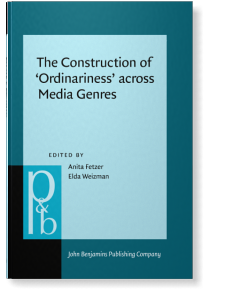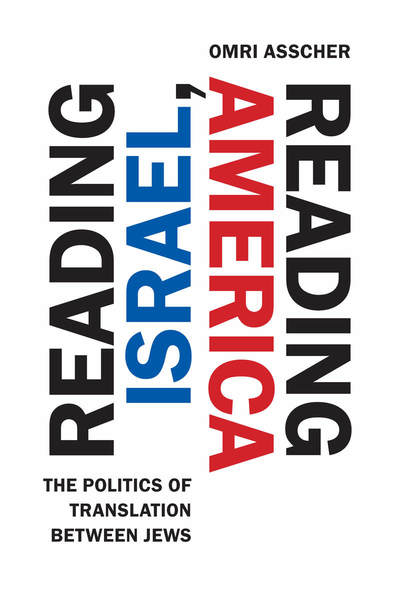Recent faculty works and projects
Books
Elda Weizman and Anita Fetzer, Follow-ups in Political Discourse: Explorations Across Contexts and Discourse Domains (John Benjamins, 2015)
Anita Fetzer and Elda Weizman, The Construction of ‘Ordinariness’ across Media Genres (John Benjamins, 2019)
Rachel Weissbrod and Ayelet Cohen, Translating the Visual: A Multimodal Perspective (Routledge, 2019)
Omri Asscher, Reading Israel, Reading America: The Politics of Translation between Jews (Stanford University Press, 2019)
Ongoing Projects
The GIF-funded The Construction of Ordinariness in Mediated Public Talk: Accountability of Communicative Action and the Private-Public Interface (2017-), jointly led by Prof. Anita Fetzer of Augsbur University, Germany and Prof. Elda Weizman, Bar-Ilan University, examines the discursive value of the concept of ordinariness in the context of public talk media, focusing on the strategies used by ordinary speakers (commenters) for the positioning of self and other speakers as ordinary, non-ordinary and extra-ordinary in three language communities: Hebrew, German and British English.
The ISF-funded Intralingual Translation: from Old French into modern French: Through the Text and Beyond (2017-), jointly led by Dr. Hilla Karas, Bar-Ilan University, and Prof. Prof. Hava Bat-Zeev Shyldkrot, Tel Aviv University, aims to develop a model of the process in which intralingual diachronic translations start to be considered as “translation”. Focusing on translations from Old French into newer forms of this language, mainly modern French, the project seeks to document, describe and analyze this conceptual turn in the history of French language and literature.
Recepients of the Bar-Ilan Rector Grant for Interdisciplinary Research Groups
Dialogicity in Public Discourse (2017-)
Led by our department's Prof. Elda Weizman and Dr. Galia Hirsch, and Prof. Zohar Livnat from the Department of Hebrew and Semitic Languages, the group employs pragmatic-based textual analysis while incorporating insights from adjacent fields such as Philosophy and Media Studies.
Its recent international workshop focused on the various intersections between political discourse and contemporary media.
Intersemiosis (2018-)
Led by our department's Prof. Rachel Weissbrod and Dr. Hilla Karas, and Dr. Ayelet Kohn from the Department of Communication at David Yellin Academic College of Education, the group explores multimodal texts from the perspective of various disciplines: translation, literature, linguistics, music, communication, education and more.
Cultural Perceptions of Emotions in the Medieval and Early Modern Eras (2019-)
Led by our department's Dr. Hilla Karas, and Dr. Tovi Bibring from the Department of French Studies, the group examines cultural perceptions of emotion as a human tool that can be guided and structured in favor of moral goals, through the analysis of representations in various forms of expression, including literature and the visual and plastic arts and crafts.
The members' diverse interests allow the group to cover a wide range of cultural products aimed at different audiences, thus improving our understanding of the ways in which culture shapes the emotional aspect so that it embraces, serves and promotes social and moral perceptions.
The Influence of Machine Translation on Intercultural Communication (2020-)
Led by our department's Dr. Omri Asscher, and Dr. Ella Glikson from the Graduate School of Business Administration, the group explores the influence of recent advances in translation technologies, particularly Machine Translation, on MT-mediated intercultural communication between lay users. With special emphasis on translation's culturally- and ethically-charged aspects, this case-study aims to shed light on broader themes in human-machine interface - a relationship that seems destined to define much of social life in the 21st century.
Its 2021 international symposium focused on the lay use and perceptions of machine translation.







